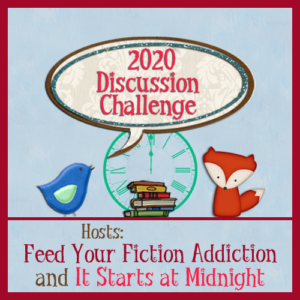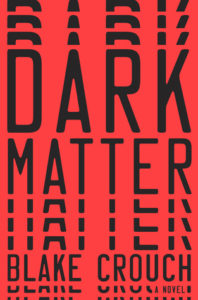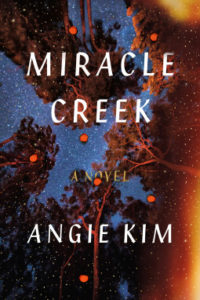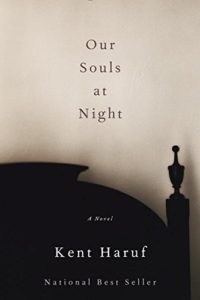
Thanks to these two bloggers for sponsoring the 2020 Blog Discussion Challenge:
- Nicole at Feed Your Fiction Addiction
- Shannon at It Starts at Midnight
You can join the discussion challenge at any time during 2020 by clicking on either link above.
Introduction
I came upon Adam O’Fallon Price’s article The Subjective Mood, in which he laments the lack of moral depth in current fiction, back in February. I included it in a literary-links round-up, but I couldn’t stop thinking about it because I find a lot of moral depth in most of the fiction I read.
Price’s piece made me think about the interplay between plot and character in fiction because of its correlation between plot and moral depth.
What is moral depth in fiction?
Price describes moral depth as the quality in a novel that doesn’t merely settle for telling a story but “also on some level considers that story and frames it, in doing so giving the narrative a greater dimensionality.” He explains further:
over and over, I find myself reading well-reviewed contemporary novels that seem unwilling or unable to engage with themselves on a moral level. They tell a story, perhaps tell it well. But I finish the book and close it with no sense of what the book thinks about the story it told.
This definition feels misleading because books don’t think; people do, both authors and readers. “What the book thinks” means exactly what?
Price correlates moral depth with plot, writing that “so many of these books are boring”:
The reluctance to engage on a moral level is closely related to a reluctance to engage on a plot level. This is because the basic mechanics of plot—a character encounters trouble, makes a choice, and endures the consequences (which usually occasion further choices and consequences)—almost unavoidably raise moral questions. Is it good that she chose this thing and not the other? Are the consequences just or warranted? And what does the book think about all this?
And there’s that troublesome concept of “what the book thinks” again.
But perhaps Price’s best description of the lack of moral depth is this extended passage:
But in recently published novel after recently published novel, a reader encounters something closer to this: a BIG EVENT happens proximate to the narrator, which makes them FEEL things and might remind them of other BIG EVENTS to which they’ve been proximate in their life, all of which occasions a lot of aimless, if lyrical prose. Various feints may be made in the direction of actual choices and consequences, but in the end, the novel’s imagined space is as safe and padded as a childproofed house. It is all about summoning atmosphere and suggesting the potential for action and choice, without actually having a character make any choices, and, more importantly, without having to dramatize any consequences that might arise from a choice. Again, to do so would risk saying something that might feel like an objective moral position, if only in the context of the novel.
What does “recent fiction” mean?
Price avoids a specific definition of what he means by the phrases contemporary novels and recently published novels, but he does offer this: “Consider, as a refreshing recent counterexample, Adelle Waldman’s excellent The Love Affairs of Nathaniel P, a novel published only seven years ago.” Waldman’s novel carries a copyright date of 2013, so let’s assume that, in general, he’s talking about novels published since 2013.
In considering the cause of the lack of moral depth in recent fiction, Price gives us this disingenuous explanation: “the most obvious, likely correct, and exceedingly boring answer is: the internet.”
It has been a long time since I heard anyone give this knee-jerk reaction to explain everything that’s wrong with modern society. Blaming the loss of moral depth on the internet only underlines even more finely how imprecise Price’s terminology is.
4 Recent Novels with Moral Depth
Here are four novels, all published after 2013, that contain moral depth. Oh, and not one of them is boring.
Dark Matter (2016) by Blake Crouch

In a world in which quantum physics allows scientists to explore parallel universes, physics teacher Jason Deesen pursues answers to the questions “How do you feel about your place in the world, Jason? … Are you happy in your life?”
In his pursuit Jason makes several choices and deals with their consequences as he searches for the answer to the most basic questions of human existence: “Who am I?” and “Who do I choose to be?” In this way, Dark Matter directly contradicts Price’s description of a lack of moral depth:
It is all about summoning atmosphere and suggesting the potential for action and choice, without actually having a character make any choices, and, more importantly, without having to dramatize any consequences that might arise from a choice.
Miracle Creek (2019) by Angie Kim

This novel follows the lives of seven people over the course of a four-day murder trial. Through the use of multiple points of view, Miracle Creek allows all participants to tell their stories and explain how they ended up at the place where a terrible tragedy caused the deaths of two people.
In the moral depth that Price misses in current fiction, “Action and choice occasions a moral dimension.” This novel attains that moral dimension by giving all the major characters the opportunity to tell their stories.
If your notion of moral depth is passing judgment, you’ll find that in this novel. The perpetrator is identified and duly punished by law. But if your notion of moral depth is to examine and understand choices people make within the complex circumstances their lives have offered them, you’ll find that here as well. Moral depth doesn’t get much deeper than this.
Our Souls at Night (2015) by Kent Haruf

Price laments the loss of “the engaged moral interplay of an author/narrator with his or her narrative.” Our Souls at Night presents exactly that in its story about two widowed older adults who seek caring and companionship in each other’s company within the confines of their small-town existence.
Like Miracle Creek, this little (179 pages) novel takes a big look at the preconceptions of conventional morality to examine moral choice in the context of individual characters’ lives.
The Seven Husbands of Evelyn Hugo (2017) by Taylor Jenkins Reid

In this novel the aging actress Evelyn Hugo is finally ready to tell the story of her life and career, but she’ll only tell it to one person, the struggling, little-known young journalist Monique Grant. It’s a story featuring ruthless ambition, seven husbands, a deep but forbidden love—and no regrets. She’d do it all exactly the same way again, Hugo tells Grant.
The Seven Husbands of Evelyn Hugo is an example of a life review in fiction. The concept of life review comes from an area of psychology known as narrative identity theory. Many older adults, as they approach their life’s end, engage in life review, the process of understanding and accepting the life they’ve lived.
In his description of the lack of moral depth he finds in current fiction, Price writes:
It is all about summoning atmosphere and suggesting the potential for action and choice, without actually having a character make any choices, and, more importantly, without having to dramatize any consequences that might arise from a choice.
In The Seven Husbands of Evelyn Hugo, the telling of the story is both the significant action and the facing of the consequences of actions made earlier in life.
(Another example of life review in fiction is Lillian Boxfish Takes a Walk by Kathleen Rooney. For more information about life stories in literature, click here.)
Conclusions
To find recent novels like these, one has to be willing to look for them. Dark Matter is straight-up science fiction, while Miracle Creek, because it features a murder, likely sits in the mystery section of bookstores and libraries. I’ve often written that I like mysteries and thrillers because the best of them deal with what it’s like to be human in the world. Readers who spurn genre fiction will never find these gems.
Also, we find the books we need at the times in our lives when we need them. Price says in his article that he’s 44. I have nearly 30 years on him, and for that reason books that feature older adult characters coming to terms with their lives draw my attention. The best of those novels carry the moral depth that accompanies the wisdom of their characters.
Books don’t think, but good books make people think. Throughout its history the novel has been the literary form that probes the questions of how individuals relate to the societies they live in. My guess is that as society evolves, novelists will continue to find ways to explore its moral complexity through fiction.
© 2020 by Mary Daniels Brown


I read your discussion of moral depth in contemporary fiction with a great deal of interest. I agree that Price’s selection of fiction is probably fairly narrow. Your discussion also demonstrates the dangers of overgeneralizing when writing about literature.
Thanks for reading and commenting, Liz. I like your reference to “the dangers of overgeneralizing when writing about literature.” I did have something like that in mind when I originally read Price’s article. I usually find articles with specific references more informative than such generalizations.
When people make sweeping generalizations like that, the gut reaction of the reader is to immediately want to find an exception to prove them wrong.
Another example of an author who writes with moral depth is Margaret Atwood. The way she points out injustice and the ills of society through her speculative fiction novels is probably the most moral of any writer I know. Fredrik Backman’s novels also contain moral depth, by the way, particularly the Beartown books. Thanks for bringing this up because, while I never thought of this before, I think that I am drawn to books that have at least a minimal level of moral depth. Fascinating topic!
I’m glad to see more examples of current fiction with moral depth, Davida. Thanks for reading and commenting.
I think we can always find specific examples of a lack of moral depth in any generation of books. And then you can also find many examples of books that contain plenty of moral depth. I haven’t read any of your examples, but I trust your judgment on these!
Thanks for reading and commenting, Nicole. I think what initially annoyed me about Price’s article was his arrogance in making such a sweeping generalization with no examples to substantiate it. Like you, I think we can “find specific examples of a lack of moral depth in any generation of books.”